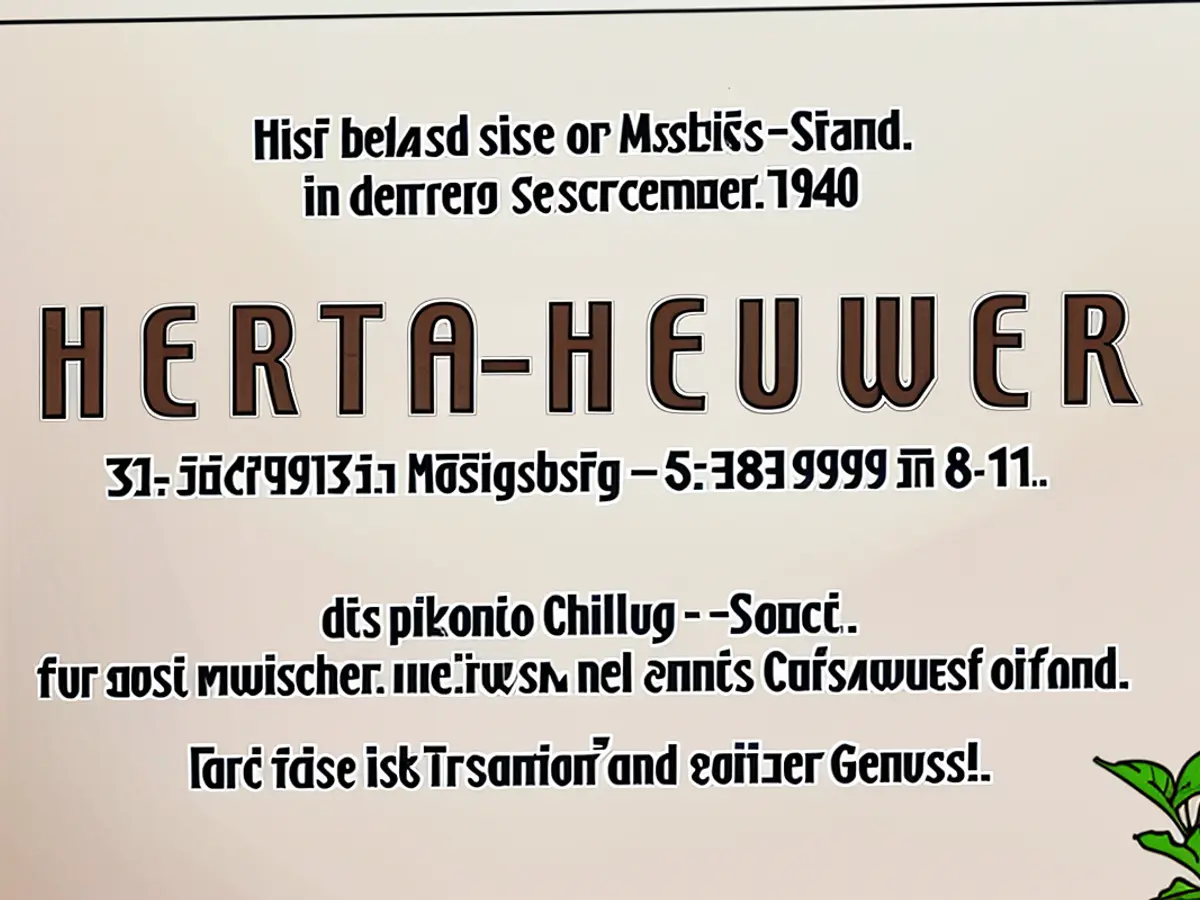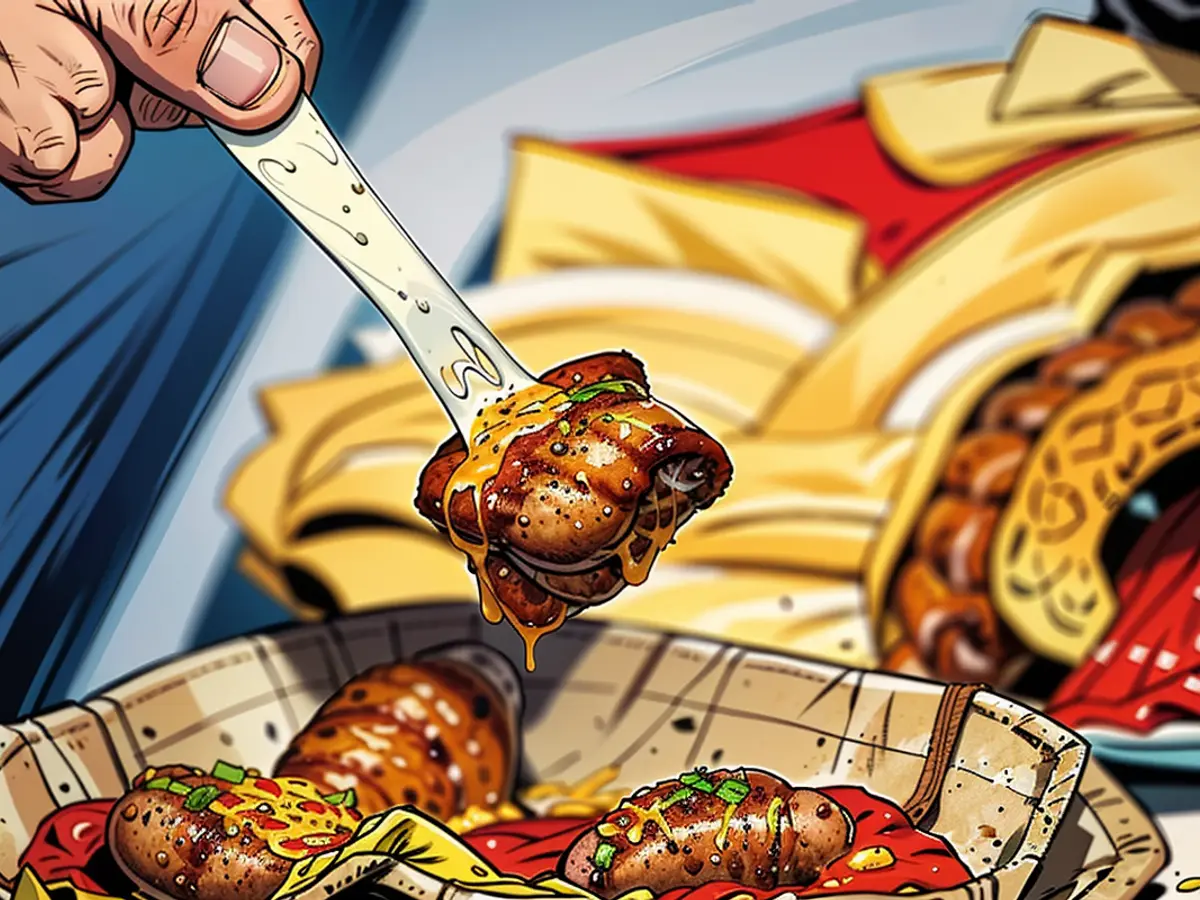From Humble Street Food to Cult Urban Delicacy: Celebrating 75 Years of Currywurst
This culinary marvel, known as the Currywurst, is famously aromatic, a beloved staple, and even worthy of gallery displays. However, pinpointing its creator is a topic of much debate. Berlin, Hamburg, and Lower Saxony all lay claim to its invention.
As a delightful, spicy snack often served with fries, the Currywurst is entrenched in Germany's street food culture. Annually, around 800 million servings are devoured across the nation, with nearly 70 million in Berlin alone.
This culinary icon has a 75-year history, but who initially brought this sausage to glory? Was it Berlin that bestowed sausage with its title, or did Hamburg invent the snack classic with its North German allure? Moreover, why does a hotel offer the iconic German dish for a whopping 26 euros?
The (suspected) beginnings
The Currywurst's origins are wrapped in numerous stories. One of the most renowned anecdotes unfolds in Berlin-Charlottenburg: On September 4, 1949, Herta Heuwer reportedly experimented with a novel sauce at her food cart out of boredom. By blending tomato paste, Worcestershire sauce, curry powder, and other seasonings, she coated a fried and chopped boiled sausage.
Other accounts suggest that Heuwer resorted to improvisation due to a lack of mustard, thus creating a new sauce. Whether born out of boredom or necessity, the sauce gained international acclaim.
From Hamburg or Lower Saxony?
In 1993, Uwe Timm published the novella "Discovery of the Currywurst," claiming the snack originated in Hanseatic City. According to the tale, standowner Lena Brücker combined curry and ketchup as she fell, thus inventing the sauce.
Brücker may be fictional, but Timm maintained that he had sampled such a sausage in Hamburg as early as 1947. This novel perpetuates the rivalry between Berlin and Hamburg over the invention.
Prince Alexander zu Schaumburg-Lippe from Bückeburg near Hannover also asserts historical connections. He claims that the Currywurst was created in the family's castle kitchen as early as 1946. A chef allegedly mixed apricot jam, tomato ketchup, curry, and salt for British Rhine Army officers, which may be considered a precursor.
The world's largest serving
Lower Saxony does hold a record: on April 30, 2010, a kitchen manufacturer in Wolfenbüttel established a world record by preparing a 175.2kg Currywurst, spanning 320 meters, before sectioning and serving. After cooking, around 95kg of tomato sauce and 1kg of curry powder were added before distribution to visitors.
Berlin, however, boasts inventing the Currywurst and honors Herta Heuwer as its creator. "I've got the patent, that's it!", Heuwer is said to have declared. In fact, Heuwer did not patent the exact recipe, as disclosure would have disclosed the strictly secret formula.
Instead, she registered the trademark "Chillup" - a blend of "chili" and "ketchup" - at the patent office on February 21, 1958. On January 21, 1959, "Chillup" was officially recognized as a trademark at the patent office with registration number 721319.
Berlin has honored Herta Heuwer with a commemorative plaque since 2003. At the time, District Mayor Monika Thiemen said, "Until now, there has been no plaque that commemorates a person who has made a significant contribution to the most important thing we have: food."
The Lavish Version
The Currywurst has also infiltrated upscale restaurants. Since 2018, it has occupied a spot on the menu at famed Berlin hotel "Adlon" and is one of the establishment's premier offerings – for 26 euros.
According to the hotel spokesperson, approximately 800 portions are sold monthly, primarily attracting foreign guests. The precise recipe for the sauce remains a secret, but it is said to incorporate exotic ingredients such as mango, lemongrass, and star anise. This fine dining dish is crowned with a sprinkle of edible gold, served with "refined" fries, and a milk roll.
The Currywurst has made its mark on the music scene, as well. Herbet Grönemeyer paid tribute to it in 1982 with the song "Currywurst." Set on the "Total Egal" album, the song became a chart-topper and encapsulates the down-to-earth culture of the Ruhr area. The Currywurst is an integral part of daily life there.
The European Union has recognized the Currywurst as part of Germany's intangible cultural heritage in 2018, reflecting its significance within German and European culinary traditions. Berlin's iconic street food continues to attract tourists, with the "Adlon" hotel even offering a lavish, 26-euro Currywurst dish to cater to upscale palates.







